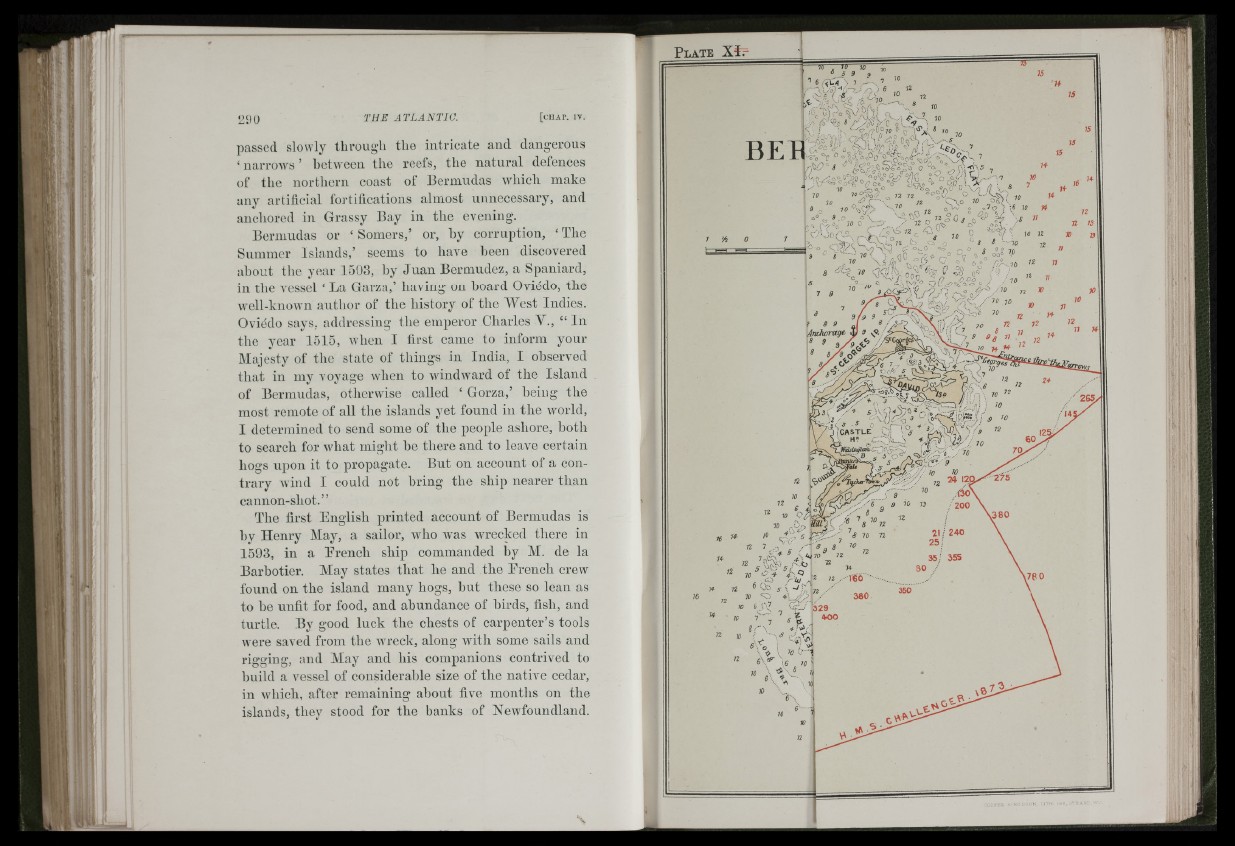
ite
’'Gli'
: ’ ' i
ff 1
I
,Tì"- ■
. ii
• i
!V' i '■
290 THE ATLANTIC. [ c i iA r . IV.
passed slowly through the intricate and dangerous
‘ narrows ’ hetween the reefs, the natural defences
of the northern coast of Bermudas which make
any artificial fortifications almost unnecessary, and
anchored in Grassy Bay in the evening.
Bermudas or ‘ Somers,’ or, hy corruption, ‘ The
Summer Islands,’ seems to have been discovered
ahout the year 1503, by Juan Bermudez, a Spaniard,
in the vessel ‘ La Garza,’ having on hoard Oviedo, the
Avell-known author of the history of the West Indies.
Oviedo says, addressing tlie emperor Charles V., “ In
the year 1515, when I first came to inform your
Majesty of the state of things in India, I observed
that in my voyage when to windward of the Island
of Bermudas, otherwise called ‘ Gorza,’ being the
most remote of all the islands yet found in the ivorld,
I determined to send some of the people ashore, both
to search for what might he there and to leave certain
hogs npon it to propagate. But on account of a contrary
wind I could not bring the ship nearer than
cannon-shot.”
The first English printed account of Bermudas is
hy Henry May, a sailor, ivho was wrecked there in
1593, in a Erench ship commanded by M. de la
Barhotier. May states that he and the Erench crew
found on the island many hogs, hut these so lean as
to he unfit for food, and abundance of birds, fish, and
turtle. By good luck the chests of carpenter’s tools
were saved from the wreck, along with some sails and
rigging, and May and his companions contrived to
build a vessel of considerable size of the native cedar,
in Avhich, after remaining ahout five months on the
islands, they stood for the banks of Newfoundland.
BET
“ « " ; \ f CD 8 70
T i ^
75
/ 0
/ i - . v S c . ° V V "U f f ,., Vil'S'A I'
iO 7 -> • 12 72 10 I*
in .'I.' •. ■■-. T9 "X O m
19 Jch, W •-'.■••• ' - ff/u 1/’ \ 1100 14-
, H H ffx gQ H fT I# 77
1 Y i » "
L N A A i N v p . . ■
n
72 IS
» w
..... -= À 0 7 2 » 10
10 H
.•■0G» 72 n
(i: